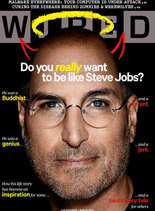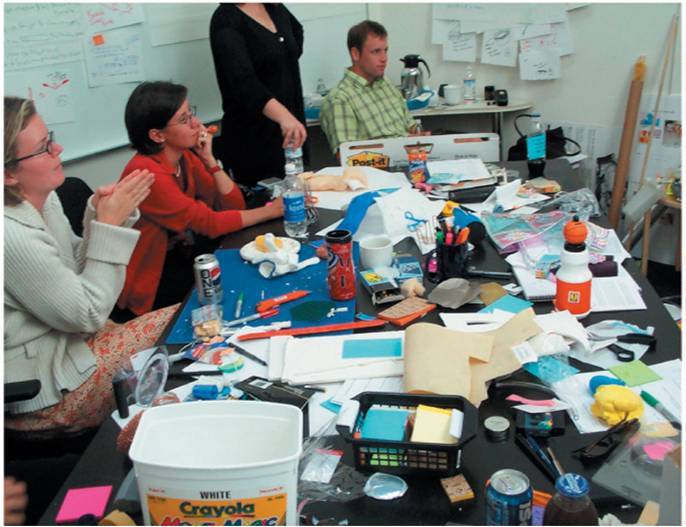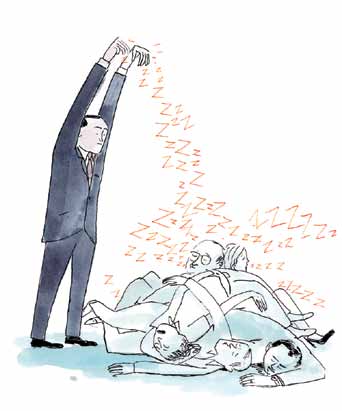This blog and much of the rest of my life were swamped last week by the intense reactions to the story about how badly United Airlines treated Phoebe and her parents when she traveled as an unaccompanied minor. You can read the blog post with the original story (and the 90 comments that were not too hostile to print) and the family's statement if you missed it. Also, Diego at Metacool did an insightful post about why the story went so viral.
At some point, I should write a post with the twists and turns of the story: the surprising hostility, the lies and veiled threats from the media, the stories about United that are far worse than the one published here (warning: stranded older teenagers might be worse than stranded young kids in some ways as they fall into a weird no-mans-land), and the senior executive ( I won't name him, he can out himself) who is on United constantly because he has no choice for his job, despises what they have devolved to, and reports he is sending back the expensive gift he got a few days ago to thank him for the 2 million miles he has flown with United — he is going to suggest that they use the money to give some passenger a little better (or at least less bad) service.
As I recover from all this madness, I continue to think about felt accountability, the concept that I used to frame the United story. Huggy Rao and I are rather obsessed with this notion as it is so central to scaling-up excellence — and for de-scaling bad behavior of all kinds. United is, I believe, a place that has lost that feeling of mutual obligation to do the right thing, where management helps employees, employees help management, employees help each other, employees help customers, and where customers feel compelled to pitch and play a helpful role too.
I am thinking — Huggy gets part of the blame here too — that there might be four different levels or kinds of accountability that a group or organization might have, which go something like this:
Authorship
This comes from my friend, early stage venture capitalist, and d.school teaching star Michael Dearing — we heard it just yesterday from him. This is what you get get in a small start-up, from an inventor, and yes, from book authors like me. That feeling that not only am I obligated to do the right thing, but that I am the person responsible for designing and making it as great as I can. Steve Jobs had this in spades, of course, but you mostly see it in smaller organizations or pockets of bigger organizations. I think of Brad Bird at Pixar as another example, especially his amazing efforts on The Incredibles, how it was his vision, but how he still instilled the feeling in so much of team: Whatever little part they were working on, he made many members of the team feel as if they were authors — if you want the feel of working with Brad, although DVD's are fading, check out the "behind the scenes" material on The Incredibles DVD. Amazing stuff.
Mutual Obligation
David Novak, CEO of Yum! brands, argues that this should be the goal of a great leader, to create a place where it feels like you own it and it owns you. This is what United has lost, what I still feel at Virgin America, JetBlue, and Southwest most of the time. IDEO and McKinsey have the same feel, as do Procter & Gamble and GE. I saw it at the Cleveland Clinic when I was patient there. I also think of people who work for the Singapore government, who can be remarkable in this regard. These organizations aren't perfect, none can be, but there is palpable weight on people, they feel pressure to do the right thing even when no one is looking, as the old saying goes. And they pressure others to do so as well.
Indifference
Think of the average hair salon, where each stylist rents a chair. Or a group dental practice, where dentists share a common receptionist and a few services and little else. Some organizations are designed this way and can be quite effective. The mutual dependence is weak, it is a "we don't do much for you, so you don't have to do much for us" situation. People don't have contempt for their colleagues or customers, it is just indifference. I was thinking that United had devolved to this state. But after the deluge last week, I realized it was worse than that. Hence, my proposed last category.
Mutual Contempt
I first heard hints of this notion at an unnamed university I worked at briefly quite a few years ago. Right after I arrived, one of my new colleagues said something "this is the kind of place where, when you a full professor, you not only don't care about your colleagues, you feel good when something bad happens to them." I should hasten to add that this was probably an overstatement, that such contempt seemed to be largely between groups and departments, not so much within them — and they have new leadership and things seem to be better.
BUT I also fear that this describes the modern United Airlines, everyone seems to despise everyone else. I hope I am wrong about this, but the awful stories rolled in from so many sources that it seems as if all the years of cost-cutting, all the battles with unions, all the management changes, all the stress that customers have endured over the years have conspired to bring the organization — at least most it — to this dark place. It appears that many United employees are keenly aware of this sad state of affairs and it hurts them deeply — especially front line employees.
I was especially struck by a long comment from a guy who said he was a 25 year United pilot. If you want to read the whole thing, it takes awhile to get there from the original post as there are 90 comments, and you have to click about four pages back, it is by Greenpolymer, August 14th, at 9:24 pm. I think this link gets you to the right page if you scroll down toward the bottom.
This pilot tells a brief story earlier in the post that really got to
me. It reflects terribly on United's management, and shows that people who act on feelings they are accountable to passengers are punished — despite claims by senior executives to the contrary:
I had the
gall to apologize to my 150 passengers for a shares delay of 45 minutes
one day. I was asked to write a letter of apology TO MANAGEMENT for
mentioning the problem. (I think the videos also say something about
being truthful and taking responsibility)
This is the worst — and most disturbing — part:
I used
to be the Captain who ran downstairs to make sure the jetway air
conditioning was cold and properly hooked up. Who helped the mechanic
with the cowling and held the flashlight for him. I used to write notes
to MY guests, and thank them for their business. I wrote reports,
hundreds of reports, on everything from bad coffee to more efficient
taxi techniques.
No more. I have been told to do my job, and I do my job. My love
for aviation has been ground into dust. After 15 years of being lied
to, deceived, ignored, blamed falsely; and watching the same mistakes
being made over and over again by a "professional management" that never
seems to learn from the copious reports of our new "watchers", I give.
It's not an easy thing to do. I am an Eagle Scout, an entrepreneur,
and a retired Air Force Officer with over 22 years of service. Those
twelve points of the Scout law still mean something to me, especially
the first three. I have been in great units and not so great units, and
the difference ALWAYS came down to LEADERSHIP. Most (and I will be the
first to admit not all) of the employees that you all have been talking
about here are desperate. They would give anything to find a LEADER,
with a VISION, and a sense of HONOR to lead this company.
Painful, isn't it? "I used to be… I used to be… I used to be." I think he is a victim of the years of contempt, which is something far more vile than indifference — not just for United customers, but for people like him who want to care.
Once again, this post is just to explore some emerging ideas — and to start stepping back from the United incident (although clearly I have not been completely successful at that). To return to the big picture:
1. Any comments on the my four categories? Do they ring true? Any advice?
2. Now the hard part. We will return to this one. How do you build an organization that starts and remains a place where felt accountability prevails? Tougher still, once it is lost — as seems to be the case at United — how do you get it back? Or is it impossible?



